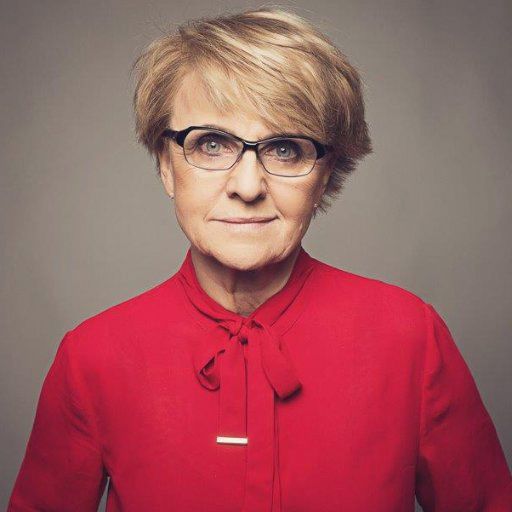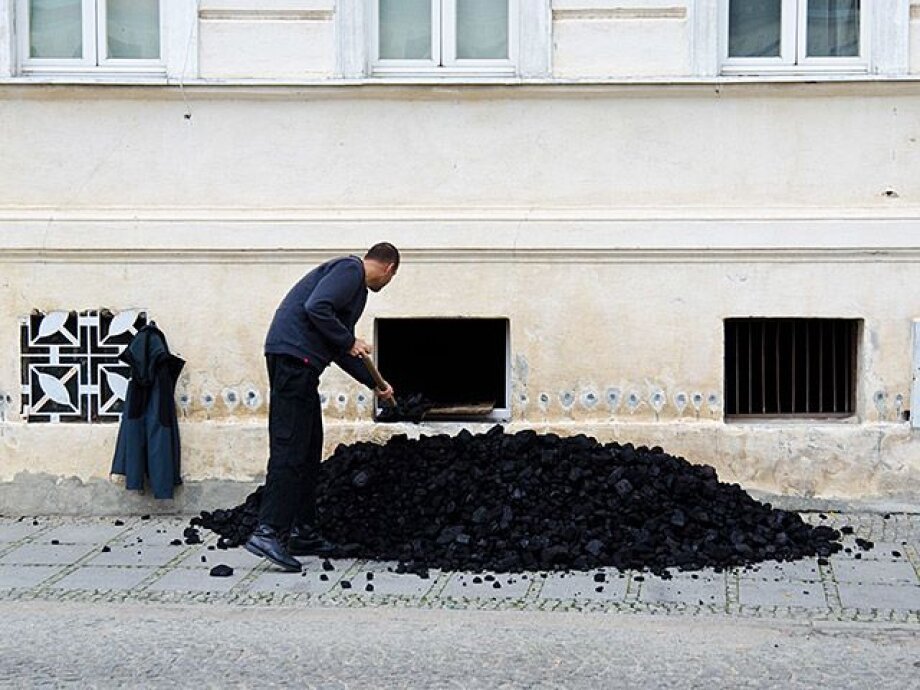WBJ: Will the EU manage to safeguard its liberal and democratic principles over the next 10 years?
Danuta Hübner: Liberal democracy and the rule of law are the cornerstones of the EU’s structure. The bloc won’t function properly if we removed those pillars and replaced them with some imitations like “sovereignist democracy” [Poland’s governing right-wing populist Law and Justice (PiS) party have recently made changes to the country’s judiciary claiming the reforms will make the court system more efficient and root out the leftovers of communism and adding that the changes Poland’s sovereignty.] As we see from the results of recent elections, the wave of populism that was supposed to sink the EU, finally did not materialize. Despite the differences, the European Parliament and the European Commission are overwhelmingly pro-democracy and pro-liberty. We must always remember that it is the citizens and their rights that take precedence over the member states as main stakeholders in the EU.
I think that now we’re in the process of raising consciousness about it across all the parts of the EU. If citizens do not engage, then it would be much easier for non-democratic leaders and parties to direct the Union toward changes that would not be hospitable for our democratic ideals. And here, I would like to take this opportunity and “make a pitch” for the Conference on the Future of Europe which is designed exactly to be a citizens’ forum, an agora, if you please. [The Conference on the Future of Europe is a political body of the European Commission and the European Parliament, announced at the end of 2019, and since then being prepared to determine new agreements, or amendments to the existing ones, on the future of European democracy during 2020–2022.] This is a very serious concept of engagement of citizens. We know what we have to do to make the EU not only survive but thrive in a tough global environment. Green Deal, digital market, multilateral world governance, participative democracy, defense of human rights’ standards worldwide, to name a few. These are huge commitments but we cannot implement them if the rule of law is brittle inside the EU itself. This is why keeping the rule of law and liberal order intact is so important for all of us considering we are all EU citizens.
Poland is supposed to receive money from the Just Transition Fund designed to help countries achieve climate neutrality. Will Poland phase coal out by 2050?
The Polish government is ambiguous on this hot topic. In December, it asked for an exemption from 2050 climate neutrality. But no matter how we rely on delaying tactics, we need to face up to the challenge at some point. Because later, the transition will only be more painful. The EU wants to ease moving away from coal. Now we will have the substantial infusion of the Just Transition Fund to the tune of €2bn depending on the budget negotiations. This is a very opportune moment to redirect our vision to the future, away from the past. We have to say quite bluntly to the governing party that you cannot indefinitely buy social peace at the cost of keeping the future prospects of Poland’s growth stunted. This is bad economics, poor politics and harmful social strategy. We have to get out of this shortsightedness that sees the coal-based economy as something unchangeable. This is an anachronistic approach that we have to do away with if we want to move the Polish economy out of the danger of possible stagnation. Poland is still an economy that seeks new development drivers and new competitive advantages. The 30 years of new Poland has missed many opportunities. The climate crisis is another opportunity that may be missed. We can’t afford it.
Do you think Europe is entering a new era with many challenges but also new opportunities?
Oh yes, absolutely. There is a new, fresh can-do attitude in the leadership of the [European] Commission, the [European] Council and the [European] Parliament. Also, there is a spirit of interinstitutional cooperation. Ursula von der Leyen [European Commission president], Charles Michel [European Council president] and the Parliament’s leadership agree on fundamental challenges before us – the fight against climate change, inclusive and growing economy that works for people, expanding social fairness and equality, Europe’s digital transformation, promoting our values, strengthening the EU’s voice in the world, as well as shoring up the [European] Union’s democratic foundations. There is, I think, an understanding that those challenges are interconnected and need a comprehensive response, not just separate, silos-like, partial reactions. Those responses should be also quite specific. Just two examples. When it comes to climate, how to reduce our carbon footprint? What effect would it have on transport connections, jobs? How will treating climate seriously redefine our lifestyle? Are we prepared for necessary changes or even sacrifices in what we take for granted? Also, the digital transformation will be a wholesale, fundamental transformation of the job market. How can we teach and reteach new skills to our citizens? Where do we find the funds? How will the public-private partnership have to evolve?
The task in front of us is to transform those challenges into new opportunities for progress. We live in interesting times, as the Chinese adage goes. A consciousness breakthrough has started on a global scale. There is a multilateral understanding that the challenges we face can only be overcome by a joint effort. Not so long ago we regretted the lack of European demos. And, I have the impression, from my conversations everywhere in Europe, especially with young people, that thesedemos have been born already, from the bottom up, spontaneously. Climate defense movements being just one example. Maybe we have finally reached such a point when numerous crisis phenomena plaguing the world and Europe made us all, or almost all, realize that unity on the European continent and European integration is our only path toward a safer and better future. European solutions are increasingly sought after as a seal of certitude in uncertain times. The self-isolating policy of [US] President Donald Trump also makes us more aware of the need for global cooperation and the importance of common rules and institutions in the area of international trade and investment and general behavior. Multilateralism, confronted with the unpredictability and political narcissism of unilateralism, is back in favor again, as a vaccine against the usurpation of populist and irresponsible politicians. And that is good. We just have to make it work, in cooperation with our partners, the world over.
How will the EU’s relations with the United Kingdom look like after Brexit?
Before we discuss the future relationship, it is important to highlight that we are currently in the transition period governed by the terms of the Brexit withdrawal agreement [an international agreement between the EU and the UK that sets out how the UK’s EU membership will end.]. This means that the status quo is largelyunchanged – we continue to conduct trade on the same terms as if the UK were a member state. The cooperation functions on almost the same terms until the end of the year. EU laws continue to apply in our relations with the UK. The only tangible difference is that the UK no longer sits at the EU decision-making table. The agreement provides legal certainty for EU citizens residing in the UK and UK citizens residing in the EU at the end of the transition period. The implementation and application of citizens’ rights in the EU will be monitored by the EU Commission and in the UK by an independent national authority. The agreement also includes a protocol on the Republic of Ireland and Northern Ireland that is designed to prevent a hard border on the island between the nations. This protocol comes into force at the end of the transition period. During the transition period, two issues will be important. Firstly, creating the architecture necessary to ensure that the agreement is properly implemented and enforced. This includes governance and the framework for disputesettlement. Secondly, negotiating the agreement that governs the future relationship between the EU and the UK.
We are not in the clear yet – a no-deal Brexit is still possible. The political declaration, although not legally binding, was agreed between the EU and the UK. Its purpose is to frame the debate during the negotiations on the withdrawal of the UK from the EU as to what kind of future relationship both sides would strive for during the negotiations. The latter is an overarching concern, especially given the UK government’s stated position that it will seek to diverge from EU standards and rules. This will be one of the main bones of contention. We have only eight months to negotiate and ratify an agreement that is supposed to cover a range of complex issues. The EU is clear in the fact that it wants an ambitious agreement, whose trade element should be based on zero tariffs and zero quotas, whilst providing a level playing field for companies in the EU and in the UK. The UK’s and the EU’s positions on how they see the future relationship differ significantly in terms of trade but we share similar views on other issues, such as cooperation on internal and external security matters. There are differences in how we seek to achieve those aims, for example how such cooperation should work. Key concerns remain, especially with regard to EU access to UK fishing waters, rights of citizens, mobility of people, transport, cooperation in research and development, financial services and many other issues. In light of these points, I think we will have a landing zone for the agreement that will reflect a more pragmatic approach, but as time is limited, it is difficult to tell which result the next eight months of negotiations will bring.
How will Brexit affect Poland’s position in the Union and the country’s relationship with the UK which is such an important economic partner?
In theory, Poland will gain strength from an institutional perspective within the EU. Poland is one of the bigger EU member states, and with the departure of the UK, its relative number of MEPs in the European Parliament will increase, thereby giving Polish MEPs a bigger weight. The same can be said of the Council, where its relative share of votes in the Council will also increase. In sum, our influence will increase. Politically, Poland has lost a member state, with which it is more closely aligned. The UK will, however, remain a partner of Poland, not least because of the economic ties, but also because of our Polish citizens, who have built a life in the UK.
In the sphere of digital technology development, the EU has not blocked, despite Washington’s pressure, Huawei’s access to the development of the 5G network in the EU. Does this show a reasonable response to the US pressure in the sphere of trade relations?
I think that we find the answers in the decision-making process in the EU and the interests of individual member states. As regards the former, the decision is in the competence of the EU’s members, since they retain sole competency for matters ofnational security. So only the EU issues guidance on the matter. The interests of member states are, in my view, the more important factor at play. Different member states have different approaches to this issue. For example, in Germany, Huawei already provides core parts for its 5G network, whereas Italy amended its legislation to allow the government to block contracts with non-EU telecoms providers. So each member, unfortunately, is looking at its own interests with regard to the establishment of 5G in their territory. The US only has influence where the EU countries decide that it is in their interest to follow its position. With the behavior of the Trump administration, it will be more difficult for the US to influence the EU in these respects.
The EU’s foreign policy is weak in the face of a changing world and the ongoing rivalry between China, Russia and the US. Are there any opportunities in the current parliamentary term to develop a unified EU foreign policy?
Under the Croatian Presidency of the Council of the European Union, we have developed a renewed focus on the Balkans – a region of vital importance for us. [The presidency of the Council of the European Union rotates among the EU member states every six months. During this 6-month period, the presidency chairs meetings at all levels in the Council, ensuring the continuity of the EU’s work in the Council.]
We want to bring candidate countries in the region into our fold and EU accession is a powerful motivator for neighboring countries to subscribe to our values. Until now Brexit has taken a lot of time and energy, and its conclusion will now allow us to focus our foreign policy and trade efforts on the EU’s external policy. The EU is also collectively stepping up its efforts to meet NATO funding targets, which has cemented member states’ commitment to NATO and our common defense efforts. The US’ latest Middle East peace plan, put forward by the Trump administration, also highlights that the EU’s soft power is still an important tool for peace and stability in the region. The US has not done anything to promote either in the region, and the only other player besides Russia is the EU. Our efforts for democracy support are not toothless and can make a small but decisive difference, for example in Latin America. As we have shown in our relations with Vietnam, our focus on expanding our trade agreements across various parts of the world yield results in promoting human rights, stability, and the adherence to multilateral rules. Especially via our trade policy over the coming years, we can achieve a great deal in this respect.

Danuta Hübner is a Polish politician, diplomat, economist and MEP.
She has served as an EU commissioner from 2004-2009 when she resigned to become
an MEP for Poland’s Civic Platform (PO) party



















